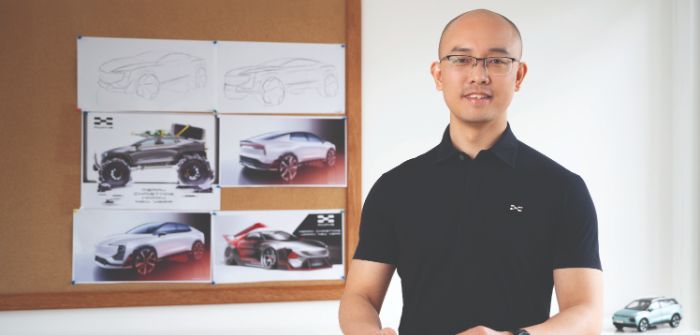Zhang Jie, CTO at Aiways, believes fresh competition in the EV arena is welcome, but how do fledgling auto makers succeed?
As most governments bring in legislation for low emission zones and plan to ban combustion engines, it’s a forgone conclusion that electric vehicles will become more commonplace over the next decade. Electrified vehicles are less about ‘motoring’ and more about technology, opening up opportunities for new companies to enter the automotive arena. This has brought about welcome change in a relatively predictable market as the new generation of auto makers brings new ideas, fresh thinking and healthy competition.
However, ‘making’ a car is not a quick or simple process. To succeed, it requires huge investment in production sites, raw materials, research and development and personnel. Years of development are needed before a prototype can even be tested, so auto makers need to think two or three years ahead of the current trends to be well positioned at launch. This is why some brands are only just becoming household names, despite their age. Take Chinese EV startup Aiways as an example. We began in Shanghai five years ago and, in 2020, became the first Chinese EV brand in Europe. Now our first model, the U5 SUV, is on sale in 15 countries and we have a second EV model planned for later in 2022.
We see being a newcomer as an advantage. Heritage comes with the burden of traditional processes and the expectation of predictable products. We started Aiways from scratch, allowing us to objectively evaluate the market and produce something we felt it was missing – an affordable electric car with European styling and high-tech features.
Aiways began by developing its own universal platform. In just 30 months, the company pioneered the world’s first platform that combined the highest-strength (2,000MPa) steel upper body with an aluminum lower – the More Adaptable Structure (MAS) platform. From the outset, we knew the MAS platform would facilitate Aiways’ future growth by accommodating variations in body style (five classes and more than 15 models), battery packs, suspension, drivetrain (front-, rear- and four-wheel drive) and wheelbase (ranges from 2,650mm to 3,000mm).
The structure of the MAS platform provided the very best combination of strength, stiffness and weight required for an efficient EV, but its development presented many obstacles such as the casting process, fixing solutions and supplier issues. With the ‘steel above, aluminum below’ combination, we utilized the most advanced flow drilling screws and self-punching riveting system technologies to achieve cold joints. This overcame the inherent problem of welding two different alloys while still ensuring safety.
Key sections of the body are made of single cast pieces to guarantee stiffness, but other parts are more complex. For example, the shock absorber tower is only 2.5mm at its thinnest point, and we partnered
with established European expert Georg Fischer to help with development.
Throughout their development, the MAS platform and the U5 SUV underwent rigorous testing and validation cycles using computer-aided engineering analysis and real-world testing to ensure they meet national and EU standards. In the process, Aiways set the Guinness World Record for the longest journey
by an electric vehicle (prototype) with our extensive engineering test drive, which covered over 15,000km from China to Germany.
Successful collaborations, tenacity and our Chinese technological expertise helped us realize our early success. The flexibility built in to the MAS platform from the outset will support Aiways to rapidly expand our line-up as market demand increases. It was important for us that our vehicles could compete in
the fierce European market, and the success of our first model demonstrates that we have the right product at the right time to encourage more people to make the switch to electric mobility.


